
The Kingdom of Judah was an Israelite kingdom of the Southern Levant during the Iron Age. It was centered in the region of Judea, and its capital was Jerusalem. The other Israelite polity, the Kingdom of Israel, lay to the north. Modern Jews are named after and also descended from the Kingdom of Judah.

The Kingdom of Israel or the Kingdom of Samaria was an Israelite kingdom of the Southern Levant during the Iron Age. The kingdom controlled the regions of Samaria, Galilee and parts of the Transjordan. Its capital, for the most part, was Samaria. The other Israelite polity, the Kingdom of Judah, lay to the south.

The Levant is an approximate historical geographical term referring to a large area in the Eastern Mediterranean region of Western Asia. In its narrowest sense, which is in use today in archaeology and other cultural contexts, it is equivalent to a stretch of land bordering the Mediterranean in southwestern Asia, i.e. the historical region of Syria, which includes present-day Syria, Lebanon, Jordan, Israel, Palestine and most of Turkey southwest of the middle Euphrates. Its overwhelming characteristic is that it represents the land bridge between Africa and Eurasia. In its widest historical sense, the Levant included all of the Eastern Mediterranean with its islands; that is, it included all of the countries along the Eastern Mediterranean shores, extending from Greece to Cyrenaica in eastern Libya.

The Israelites were a confederation of Iron Age Semitic-speaking tribes of the ancient Near East, who inhabited a part of Canaan during the tribal and monarchic periods.
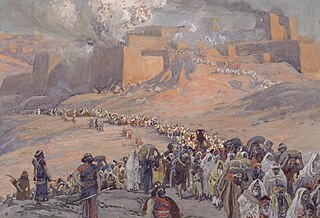
The Babylonian captivity or Babylonian exile is the period in Jewish history during which a large number of Judeans from the ancient Kingdom of Judah were captives in Babylon, the capital city of the Neo-Babylonian Empire, following their defeat in the Jewish–Babylonian War and the destruction of Solomon's Temple in Jerusalem. The event is described in the Hebrew Bible, and its historicity is supported by archaeological and non-biblical evidence.

The historicity of the Bible is the question of the Bible's relationship to history—covering not just the Bible's acceptability as history but also the ability to understand the literary forms of biblical narrative. One can extend biblical historicity to the evaluation of whether or not the Christian New Testament is an accurate record of the historical Jesus and of the Apostolic Age. This tends to vary depending upon the opinion of the scholar.

William Foxwell Albright was an American archaeologist, biblical scholar, philologist, and expert on ceramics.

Biblical studies is the academic application of a set of diverse disciplines to the study of the Bible. For its theory and methods, the field draws on disciplines ranging from ancient history, historical criticism, philology, textual criticism, literary criticism, historical backgrounds, mythology, and comparative religion.

Israel Finkelstein is an Israeli archaeologist, professor emeritus at Tel Aviv University. Finkelstein is active in the archaeology of the Levant and is an applicant of archaeological data in reconstructing biblical history. He is also known for applying the exact and life sciences in archaeological and historical reconstruction. Finkelstein is the current excavator of Megiddo, a key site for the study of the Bronze and Iron Ages in the Levant.
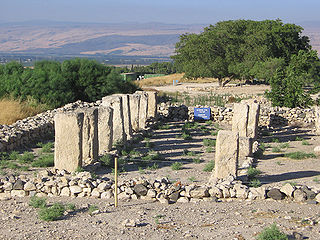
Tel Hazor, also Chatsôr, translated in LXX as Hasōr, identified at Tell Waqqas / Tell Qedah el-Gul, is an archaeological tell at the site of ancient Hazor, located in Israel, Upper Galilee, north of the Sea of Galilee, in the northern Korazim Plateau. In the Middle Bronze Age and the Israelite period, Hazor was the largest fortified city in the country and one of the most important in the Fertile Crescent. It maintained commercial ties with Babylon and Syria, and imported large quantities of tin for the bronze industry. In the Book of Joshua, Hazor is described as “the head of all those kingdoms”.

Biblical archaeology is an academic school and a subset of Biblical studies and Levantine archaeology. Biblical archaeology studies archaeological sites from the Ancient Near East and especially the Holy Land, from biblical times.
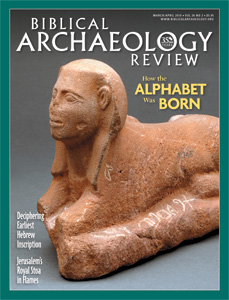
Biblical Archaeology Review is a quarterly magazine sometimes referred to as BAR that seeks to connect the academic study of archaeology to a broad general audience seeking to understand the world of the Bible, the Near East, and the Middle East. Since its first issue in 1975, Biblical Archaeology Review has covered the latest discoveries and controversies in the archaeology of Israel, Turkey, Jordan and the surrounding regions as well as the newest scholarly insights into both the Hebrew Bible and the New Testament. The magazine is published by the nonsectarian and nonprofit Biblical Archaeology Society (BAS).

The United Monarchy is the name given to the united Israelite kingdom of Israel and Judah during the reigns of Saul, David and Solomon, as depicted in the Hebrew Bible. It is traditionally dated to have lasted between 1047 BCE and 930 BCE. On the succession of Solomon's son Rehoboam in c. 930 BCE, the Biblical account reports that the country split into two kingdoms: the Kingdom of Israel in the north and the Kingdom of Judah in the south.
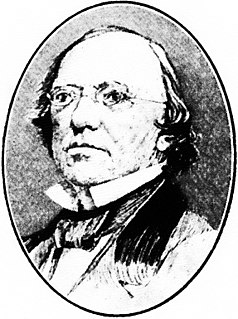
Edward Robinson was an American biblical scholar known for his magnum opus, Biblical Researches in Palestine, the first major work in Biblical Geography and Biblical Archaeology, which earned him the epithets "Father of Biblical Geography" and "Founder of Modern Palestinology."
Hershel Shanks was an American lawyer and amateur biblical archaeologist. He was the founder and long-time editor of the Biblical Archaeology Review.
William Gwinn Dever is an American archaeologist, Old Testament scholar, and historian, specialized in the history of the Ancient Near East and the ancient kingdoms of Israel and Judah in biblical times. He was Professor of Near Eastern Archaeology and Anthropology at the University of Arizona in Tucson from 1975 to 2002. He is a Distinguished Professor of Near Eastern Archaeology at Lycoming College in Pennsylvania.
The Biblical Archaeology Society is a non-sectarian organization that supports and promotes biblical archaeology. It publishes Biblical Archaeology Review. Its past publications included Bible Review (1985–2005) and Archaeology Odyssey (1998–2006). The Biblical Archaeology Society also publishes books about biblical archaeology aimed at a general readership. The Society has, for more than 30 years, run seminars and tours offering an opportunity to learn directly from world-renowned archaeologists and scholars. It also produces videos (DVD) and CDs on archaeology and biblical archaeology.
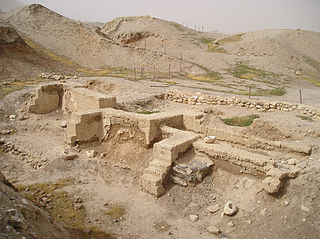
Levantine archaeology is the archaeological study of the Levant. It is also known as Syro-Palestinian archaeology or Palestinian archaeology. Besides its importance to the discipline of Biblical archaeology, the Levant is highly important when forming an understanding of the history of the earliest peoples of the Stone Age.
Biblical archaeology, occasionally known as Palestinology, is the school of archaeology which concerns itself with the biblical world.
Philip J. King was an American Roman Catholic priest, historian, and archaeologist.











